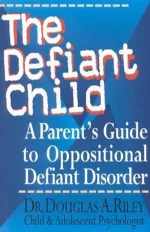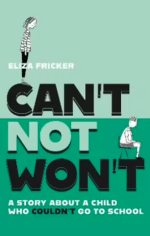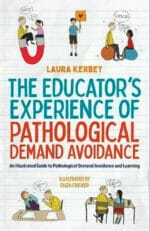Episode 205: What to do when your child can’t go to school: Learning about PDA with Eliza Fricker
Learn about PDA. The podcast discusses PDA (Pathological Demand Avoidance) and its impact on individuals, particularly children. It emphasizes the importance of creating a suitable environment for individuals with PDA to thrive and highlights the positive qualities of individuals with PDA.
Subscribe to this podcast via your favourite app
Join my newsletter for more awesome information about ASD
Join the facebook group specifically for this podcast – https://www.facebook.com/groups/suelarkeypodcastcommunity/
Discussed in this episode:
✅ The diagnosis that made Eliza realise why she had to parent differently
✅ Importance of consistency instead of planning for PDA
✅ Classroom strategies for PDA
✅ Focusing on Fun and meeting the child where they’re at
✅ Strategies of low-demand parenting
✅ About Eliza’s best selling book: Can’t Not Won’t
- Recognising Individual Progress: Understanding that every child’s growth trajectory is different.
- Building Relationships: The significance of rapport with children, especially those with PDA (Pathological Demand Avoidance).
- Non-traditional Learning Methods: The value of activities like cooking or gardening, which can be less stressful and more engaging for some children.
- Positive Outlook: The need for educators to maintain a positive outlook and focus on creating the right environment for each child.
- ‘Tomorrow Box’ Strategy: A strategy that allows children to postpone tasks they don’t feel like doing today, fostering a sense of control and reducing anxiety.
- Consistency: The importance of maintaining consistency in our approach to every situation, providing a stable and calm environment for children.
- Repair and Rebuild: The idea of taking time to repair and rebuild after stressful periods, allowing for slow and steady progress.
- Right to Choose: The importance of giving children the right to choose and respecting their different timeframes and boundaries.
- Use of Illustrations: The use of illustrations and doodling as a form of expression and a tool for concentration and processing information.
- Collaboration: The need for collaboration among all adults involved in a child’s life, including parents and professionals, to ensure the best outcomes for the child.
Each point is connected to the next, illustrating the interconnectedness of these concepts in creating a supportive and effective learning environment for children.
Listen to my podcast on Separation Anxiety
Link to Other Resources
PDA Society – https://www.pdasociety.org.uk/resources/pdaanz-australia-and-nz/

-
Super Shamlal – Living and Learning with Pathological Demand Avoidance
$40.95 -
Collaborative Approaches To Learning For Pupils With PDA
$37.95 -
The Defiant Child: A Parent’s Guide to Oppositional Defiant Disorder
$30.95 -
Can I tell you about Pathological Demand Avoidance syndrome?
$28.95 -
Can’t Not Won’t. A Story about a child who couldn’t go to School
$37.95 -
The Educator’s Experience of Pathological Demand Avoidance An Illustrated Guide to Pathological Demand Avoidance and Learning
$40.95
TRANSCRIPT
Building Relationships: The significance of rapport with children, especially those with PDA (Pathological Demand Avoidance).
Welcome everybody. I’m absolutely thrilled to have Eliza Fricker here, who is an illustrator, author, and, most importantly, a mother of a P D A child. I’m super excited to have Eliza on the podcast to share her experiences of knowledge in all sorts of areas.
Today is about learning about pda – let’s go!
So welcome, Eliza. Thanks for having me. So can you just give us a broad, what’s your experience of PDA for people who might know anything about it or know? Yeah, I think for most of us who are parents of children with demand-avoidant profiles, I think we come to it quite late. That was certainly my experience that you are Kind of going through.
You are going to meetings; you’re going to coffee mornings, all of the muscle sort of around having an autistic child, and none of it is quite. Resonating or chiming. So some of it is, but there’s a lot of it where you think this doesn’t really fit, or I don’t think that would work for my child.
So there’s a kind of, that’s quite isolating in itself because you are going to these meetings, which are there to Kind of support you and. Make you feel part of a community with other parents, but you are partly thinking, well, this isn’t gonna fit, or this isn’t my child. So I think that’s how we all start off.
And then we find out about PDA, and then we get that light bulb moment, and that’s when we can start to Kind of, that’s when we furiously start to research. And probably rip up parenting books somewhere along that. The way we, when we find that out and start, do things quite differently, and that’s when we see the change and usually that’s, that change comes around that time when things become quite difficult.
I would imagine most parents I speak to, you Kind of get to this point where it’s sort of unsustainable for anyone. You know, parents are miserable, and the child’s miserable, so something’s got to give, and something’s got to change, and then hopefully, It gets a bit easier and a bit more positive.
But yeah, I think most of us come to this quite late after quite a long time. Struggling really. Yeah. What age was your daughter when she got the PDA added? Well, we never went down the official diagnosis week. Yeah. Because it’s not in the DSM five. I didn’t really want to go down that route anyway. I felt there was a lot; it was enough for us to have.
That diagnosis of autism and it didn’t seem necessary for us. And it’s something I talk to a lot of families about, you know, it’s more money, you know, have you got another couple of thousand pounds to spend on that diagnosis or can you do this stuff? Just with the knowledge that you do have, now you know that it’s p d a.
Absolutely. And I think that’s the case for many families, but I really like the way you are saying that you had the autism diagnosis, but none of that was really hitting, like only bits of it were hitting. What sort of things, once you’ve started reading about PDA, sort of jumped out at you that you went, that’s my daughter.
Were there moments like that for you? I think, to be honest, I think a lot of it was when you were given things. Things like. You know, a whiteboard or planning, there was a lot of things around planning. You just need to Kind of plan more, and then things will become easier. And I was thinking, God, you know, planning in our house, absolutely not.
You know, and I think that’s the thing. It’s really difficult with professionals and parents, and this is what. You know, so much of my work is about getting everyone on board and on the same page to work collaboratively. We talk about this collaboratively with our own children, but we need to work collaboratively, the adults involved, because often what happens is professionals, well-meaning is sort of making these suggestions and families are like, absolutely no, this stuff is not gonna work.
So you immediately are in this strange sort of, Quite, quite Kind of stressful dynamic because you’ve got professionals saying, well, why are you not gonna try this? How do you know it’s not gonna work? And we Kind of instinctively, as parents know, that’s not gonna work. And often, we know that will probably end in another meltdown.
And then obviously the professionals would think, well that’s probably cuz they’re not Kind of putting those boundaries in, you know, they’re being too laid back or inconsistent with those children and, you know, if they put more in so professionals would Kind of, could ramp it up more. And the families are the PDA kid is going no; we need to pull back more.
So yeah, it’s a very tricky dynamic. So, but there, certainly for me, it was that stuff where I just knew instinctively a lot of it, it’s not gonna work. Yeah. So, for example, when you’re saying like a whiteboard, do you mean like being told to follow a schedule or routine and your daughter would push back against that?
So what works, then? Let us know what works Absolutely for her. Yeah, so I think that’s really important. So I think it’s it. What I change that too is rather than having planned Kind of routines, what I talk about is consistency. So what we need with that actually is we need consistency in us. So in how we approach every situation so we don’t become dysregulated.
We have to be really even and really calm for our children because their nervous systems are so sensitive. What they need is they need to know that we are consistent in how we approach every situation. They are hypervigilant all the time, looking for how we’re going to react. So I talk about consistency over routine.
That’s really important. So a lot of the work does have to come from us, and you know, we are. As adults, often, parents are quite traumatized because of what their children have been through. So we can be quite dysregulated with that. You know, we can be quite stressed out by that. So I talk a lot about Kind of getting ourselves into a place where we can be as even and calm in our temperament with our children, even when that.
Non-traditional Learning Methods for PDA: The value of activities like cooking or gardening, which can be less stressful and more engaging for some children.
Some of the stuff that they’re throwing at us is extremely challenging. We have to still almost have this zen-like calm all the time. Eliza, the people who’ve been listening have been to my workshops. I call it being a G P S. And a GPS; even if you’re swearing at it or angry in the car, it just stays calm, clear, and concise.
It doesn’t change its tone; it doesn’t react. And because our kids, they’ll pick up on the slightest change in voice or the slightest change. And so, for me, you have to really practice that zen. Sometimes you need to put the sensory tool or piece of blue tack in your hand. Yeah. And really. Calm yourself.
But I find if people use that calm, monotone voice, and I always say like a GPS doesn’t use the word no. And your daughter would not like it; she needs real choices, and she needs clear, calm, and consistency. And you know, it’s funny you’re saying that as a parent, people would say the child needs routine or the rest, but when I’ve taught some children, I would have.
Admin at the school telling me as a teacher, well, one of the strategies I like to give children who are PDAs a tomorrow box so we can leave something to do tomorrow because all of us leave stuff for tomorrow and it just gives them out. It’s like they’re not saying they’re not gonna do it, just. We’ll look at that tomorrow.
And I find that just gives children a really powerful choice about, I let them choose what older they’re gonna do things, and if they don’t wanna do it today, not a problem tomorrow box. But you’d be amazed how many people would think as a teacher, I should be making children so we have the same struggles.
I love that as well. And I think that’s so important, always having that way out and feeling that. Because again, when that child has that ver, when they’re very stressed. And have a kind of very small capacity for dealing with things that is part of the building blocks for them. Knowing, okay, well, that’s fine.
We can; we have the flexibility to move that to another day. That will immediately reduce the anxiety down immediately. A hundred per cent. And again, it’s that consistency, like the tomorrow box is always on the desk. Some days we need, some days we don’t, but I’m guilty of that. We, you know, at the weekend I was gonna do things, and I’ve moved it to tomorrow.
So I feel we should give children the right to choose for tomorrow. And especially our children who are so brave just turning up at school, you know, they need that option. Believe that, you know, because really what doesn’t matter, choose your battles, is one of my favourite sayings. Yeah, I think that’s one of any PDA parent’s favourite sayings, isn’t it?
Choose your battles. I think that’s a, yeah. Yeah. And I often say to teachers, well, what’s the educational outcome? You know, what’s the goal of forcing a child to do something? Breaking your relationship with them. Often, you know that building a rapport with our PDA children is so important, and if you’ve.
F force them to do something that they will hold onto that for a long time. Whereas if I say, that’s alright, put in the tomorrow box, you know, the GPS come, then we’re building our trust in each other, and I find the children do come in and do it the next day. That’s the thing. People don’t realize that because these, well, these chil P D A children often are so anxious and want to do the right thing.
That is my experience; it’s very rare. They put it off and off. They’ll; they will get to it, you know? Yeah. Yeah. And I know, like, congratulations on your book. Can’t Not. Thank you. Very excited and the fact it’s a best seller Sunday Times bestseller. Just fantastic. So now, yeah, I mean, shocked.
I was shocked, to say the least when that came through from my publisher, but they were very happy too. It’s I think it just shows how many of us are out there, you know, and that’s a really lovely thing for families to know. They’re not alone with this, you know, there’s lots and lots of us struggling.
Yes. And I think what I loved about the book is the honesty about all the just. Where your daughter’s meant to have fun at swimming or she’s meant to have fun. This whole concept of what fun is and, you know, children want to go to school, and so that whole guilt, I think, comes through that many families experience.
Yeah. And the illustrations are amazing. So have you always been a drawer? Yeah, always. So my dad was a political cartoonist, and so I always drew with him, you know, it was something I’ve always done, and it’s for me, you know, I’ve realized. That there actually later on in life, I realized that I have my own struggles with school.
I didn’t always enjoy school. And so, having my dad at home, my dad was an artist. He stayed at home, and I would come home from school, and I would sit with him. I mean, he’s like the ultimate low-demand parent, I have to say. So I would come home from school, and we would just draw together. We would sit there; we were makeup characters.
It was a really interactive thing, and it was a really connective thing. And so I’ve always done it. It’s always been a real comfort to me, and it’s always been a really good way for me to communicate and process things. You know, I often talk about that, and I think I put it at the beginning of the book.
Particularly when you’re going through something very stressful, it’s very difficult to process it at that time. So for me, having that was a really good way of processing my experiences, healing from those experiences. But it was also really empowering. You know, I talk about how sending angry emails.
Didn’t really work. I Kind of learned that very early on, you know, the ranks close in when you send a grumpy email to a, you know to a professional. But what I did learn is I could draw, you know, drawing, which has always been my outlet, was a really empowering way for me to share our experiences.
And then I realized there were lots of us out there going through very similar things. So having that connection through the drawing was really good as well. Yeah. And I love that in the book where letting, I guess letting other people know they’re not alone is really important. Because I think a lot of parents feel very isolated and really shame to talk about it, you know, that their children don’t wanna go to school.
It’s about keep learning about pda each day
So so, why did you write the book? I mean, what made you then go, I wanna put this as a book? Well, it was talking to my editor, really. I was sort of, you know, for, it was there for quite a long time, and I think I had talked to various publishers, and they were like, I’m not sure that there’s really much Kind of scope for this.
It’s probably pretty niche. And then it was sort of working with my publisher, and obviously, they could see the reach that they were like, let’s get this out there as a book, you know, let’s. Put this together. So it was using my illustrations, missing the mark, which I think by the time it was published, I’ve got sort of 35,000 on Facebook.
Repair and Rebuild for Students with PDA: The idea of taking time to repair and rebuild after stressful periods, allowing for slow and steady progress.
You know, the reach is there, as we’ve seen. And yeah, I think they just sort of were really keen to get it out there. And then, we worked together to use the quotes from the book. So the quotes are Kind of tying it together, and they’re just different things that I was told. On our journey, and I think a lot of other families are told very sort of similar things.
Those sort of suggestions that are said versus the reality of what it’s like was quite powerful. Yeah. I love that. Have you tried Lavender oil? I’ve heard that one many times. Eliza, I’m sure many of my listeners have heard that one too. Yeah. I don’t think that’s gonna cut all these. And all these things, you know, this is the thing that, you know, I always say, you know, professionals are always trapped by these Kind of inflexible systems as parents.
And, you know, often these things are said, and they are really well-meaning, you know, I’m not there to Kind of slander the, you know, professionals, but it is. It’s just that when you are absolutely on your knees, often these things are said because no one knows what to say, do they? It’s these awful situations where everyone’s like, oh, and trying to come up with something that might help.
And you are, yeah, a million miles away from lavender oil at that point, but you e Exactly. Well, exactly. So what would you like people to take away from the book more than anything? I think it’s a kind of, again, we talk, you know, I’m always talking about this little connection and our children needing that connection, and I think families do as well.
I often say no one told us at that time that other families went through that. Now that would make a huge difference. We are not saying we can wave a magic wand over this, but if I had known. You know, if those coffee mornings were saying, here’s a group of other parents whose children also can’t go to school, that would’ve given me something.
And maybe the impetus to Kind of start earlier about thinking about other options as well, other options for learning, because I didn’t know that other families were going through this. So it made me think we have to keep trying. We have to keep trying to get her in. And that, well, as we know, that was very damaging for her.
So I think telling families that other people, other families are going through that can make a big difference. Hundred per cent. And I mean that’s the advantage of both your blog and your Facebook presence, and the book is I think people not knowing they’re alone is so empowering in itself. So and so, where is your daughter at school at the moment?
What have you ended up doing? I. Well, we’ve done a very PDA route where we’ve done different things and then for about a year and then changed it up. So that’s another thing I always say to families, never think you’ve got it sorted. No, I always say there is no, like, I even say to teachers, like, if you have a perfect day, don’t think I’ll hit replay the next day.
There is no replay. Like, it’s just cause you, oh, that day was so good. We’ll just reply. No. Not gonna happen. That’s actually the worst thing you can do to think we’ve got it sorted. Yeah. But yeah. Yeah. For families, it’d be interesting to hear the route you’ve gone because, again, that can be reassuring for them about the different options.
So I’d love to hear, yeah. We did a kind of real Kind of repair in this door at home for a while. So I think I’ve shared it quite a few times, that Kind of building blocks, drawing where we started a very small, just being at home, drinking cups of tea and spending time together and gradually seeing her being able to leave her bed, you know, it was a very slow process to repair after that.
And it, and you know, that’s something I say to families, take that time, you know, even if you find a. Another environment that you think could work for them. You know, you can blow it if you rush that process because there aren’t that many good environments for them. You don’t wanna lose that opportunity by rushing it.
So take your time to get there. It’s good to know it’s there because it helps you to know their options. But take your time. So yeah, we really took our time with that. And then we had. Tuition came into the home, and that was very child-led, very non, not non-worksheets, non-school like it was very much just playing games and having a nice time.
And again, that was another building block to having another adult in the home. I started to leave the home, and that was all part of that Kind of pulling back and her having someone else she could trust. And then we found a really nice trauma inform setting that was Kind of child-led learning, no behaviour stuff, all very Kind of restorative.
And yeah, and now we’re Kind of looking to change it up again cause we have a fully-fledged teenager who’s nearly ne, nearly ready for something else but very well, you know, not dysregulated anymore. I very much enjoyed it. Independence, going out with friends, cooking for themselves. So yeah, really Kind of that, I think that sort of next step of, you know, what’s next with school learning college it’s a quieter voice in my head now because we have a very well independent, happy child.
So that isn’t such a concern for me now. Absolutely. Absolutely. I dunno if you’ve ever met when Lawson, but they say they get there; they just take longer. And I just think that is, you know, who said schooling has to be on this perfect 12, 13 years? Sometimes, people need longer than that.
And particularly if you are. Autistic. I think respecting that you need different timeframes and different boundaries, and we don’t need to rush through all of this, you know, and yeah. Yeah, and it’s hard. It still takes a lot to do that, you know, we get these key moments through life at the minute.
Here. All my friends and our children are going through the G C S E stage, so, you know, it takes a lot from me to quiet and that sometimes that voice of, because we’re not on that path, but, you know, you have to remember how far you’ve come and how good your own progress because that, like we always say, green shoots are very different from other people, so, A hundred per cent.
And I just think for anyone listening, that’s really reassuring. But also for educators, not just our teachers. Often in Australia, it’s our teacher assistants who are working one-on-one with our PDA children. And often trying to build that relationship and rapport. And that’s, I’m sort of with you.
Like, why not take them out and we’ll do some cooking or do something they enjoy And you know, that aid time doesn’t have to be used to To do a worksheet. I mean, you can teach everything through cooking or if the child loves gardening, or there are so many routes to learning without it having to be a worksheet and a piece of paper, which for some of our children, just creates a panic attack.
So, yeah. Yeah. No, you’re right. So I guess I would love it; I know you’ve done the ed educators’ experience of PDA too with Laura; what are the takeaways in that book for teachers? If there are teachers listening, what sort of things should they keep in mind? Or if they were having a child with p d A in their class?
Yeah. What I love about that book is how positive it is. And I think so often all of us feel quite negative about stuff. You know, I’ve seen it; I call it the pullback. I always say to parents, look for the pullback. If you see any professional or anyone you meet and you talk about PDA or demand avoidance, and they do this, you know because people do see it really negatively.
And actually, I work with a lot of older people. Who has a PDA profile? I’ve got a, I’ve got a PDA profile myself, and I don’t see any of that. And that’s the thing, once the environment is right, you know, you don’t see this stuff that everyone Kind of does focus on. Most pda. People I know are incredibly funny and energetic.
It’s just you’ve got to get that environment right. And I think that’s what’s lovely about Laura is the tone of Laura’s book is that it’s all about that. It’s all about us. We talk about Kind of adaptations. We, as adults, may call those adaptations in ourselves for these children, and young people, to thrive.
And I think that comes across. So much in her book, you know, it’s very much about meeting the child where they’re at. And there’s, you know, lovely examples of Laura’s work cause she’s worked for so long in this field. She’s got some lovely examples of meeting those children where they’re at and Kind of taking away that hierarchy, and it’s just that; I just think it’s such a lovely book.
Yeah. Can you give us one example of one of the ones you like? Can you think of one? Well, I’m gonna have to do Laura’s favourite one, the jab of the hot one. Do you remember the jab of the hot? No. Remind me; I forgot. I read it eight ago. Well, there’s a, she goes in to do some tuition with a young person who’s just not feeling it that day, you know, won’t engage with them at, won’t engage with Laura at all.
And she goes in, the child just says, oh, what’s that on your top? And she’d been making chocolate cake the other week, and she went, oh, that, that’s just a bit jab of the huts poo. And this child just then ends up bursting, you know, hysterical laughter about it. And then they go off on this big chat about Jabba the Hut and what kinda p he has and you know, but it’s the way, I mean, Laura is a naturally funny person.
Yeah. Cause I know her professionally, a young person. But it’s that, isn’t it? It’s just putting that in really off the cuff. Yeah. You know, just Charles like. A hundred per cent. A hundred per cent. But I really like what you just said before, and I think the thing that frustrates me the most is that I always say it can take six months to see a child’s sense of humour for them to be relaxed enough in the classroom with the teacher’s aid.
In Australia, that’s what we call it. So often, it’ll take six months. But I know once I see the child’s humour that we have got, like, you know, it’s so important and often why sometimes we’d recommend a child stays with the same staff for a couple of years because they’ve got to that one. You know, I only see the child’s sense of humour by term two.
I would prefer to have another. 18 months with that child where we can go to those next places because we understand each other and each other’s humour and you can have those jokes and those laughs and, you know, I’m the first to get frustrated. That’s not in the diagnostic criteria. I think it should be there that they have a fabulous sense of humour.
Yeah. And that’s your way in, isn’t it? We talk about these way-ins. Yeah. And that’s your way in. Yeah, a hundred per cent. But you can’t force it because if the child’s hypervigilant, they can’t show their humour. And for me, once I know that, that. Anxiety’s down, the humour goes up, and you know, I get to see that, that fun and cheekiness, you know, that doesn’t get talked about enough.
But their passion for and love for things. I mean, I always think these are the bravest kids you’ll ever meet. If I had p d and I promise you, I’d be under my doona all day; I wouldn’t come. Yeah. Yeah. Well, that, I think that’s why parents really struggle with the word resilience, isn’t it?
Because our children have bags of it, you know, bags and bags of it. So much. I’m with you. I mean, it’s, I honestly, I always say put yourself in a child’s shoes. If you were that overwhelmed and anxious, like. You would not get outta bed. There’s no way. There’s just no way. And so they’re the bravest kids you’ll ever meet.
Really. And I think and parents, I’ve like take my head off to you that really, that’s what’s so special about your book. I think that you show that vulnerability, but you also talk about the. Yeah, the in, in some ways, it’s funny. You make you make it fun and accessible. And I think also the drawings.
Parents don’t want another heavy book. Just no. I mean, this is the thing, isn’t it? We get recommended. So many goods, I mean, there’s so much stuff coming out at the minute, and then you think. Oh, but I’ve gotta find time to read this. And that’s, you know, hopefully, these don’t take a huge chunk of time for you to read them.
And also, that’s another great thing to share with professionals because, again, professionals get given a lot of stuff to read. But hopefully, these will be a little bit easier for them to get through. Absolutely. Now I have to ask, why did you call your Facebook and blog missing the mark? Because that’s what I felt.
I felt like all the Kind of offers of support that we got were just missing the mark and then also missing the attendance mark. You know, we as gets marked in AM pm that was missing. So I felt it covered quite a few areas. By calling it that. So yeah. Well, good. I was I wanted you to explain it so that people remember it too so that they go and have a look.
Yeah. Listening to the podcast, they actually go and follow you because I think they’re gonna love seeing the illustrations and your lovely insights. I feel like you’re nearly a poet when I read some of them. Do you feel poetic? Yeah, I mean, I’m, I mean, I love that Kind of style of writing. Anyway. I love prosy Kind of writing.
I think it’s the stripped-backness, a bit like my cartoon. You know, they’re stripped back. You know, an editor said to me years ago, she said, you don’t put a lot of detail in them, do you? And I was thinking, no, I don’t. Maybe I should try. But actually, that space is to Kind of give people that space to think, and it gives it a little bit more of a whack, a bit of power to it.
And I think that’s the same as prosy writing. It’s stark; it’s pulled back. So actually I’m, I’ve got a meeting with my editor next week cause we’re going to try and put together some of the poet tree prosy stuff that I’ve done this. I see. I’m here. Me asking if you thought of yourself as a, you’re in the wrong profession.
Profession. You should be. We might be on other sides of the world, Eliza, but we’ve got each other’s back there. Now the other thing, cause I think one of the things I really enjoyed reading some of your. Things, I’m missing the mark, and I just would love teachers to hear about you as a student at school doing your doodling because I have had a lot of students over the years who really learn best when they’re allowed to sit and doodle.
But can you sort of explain how that helped? I don’t know if you can use words to explain how it helped you process, but for a teacher, what would you like them to know when you are drawing what’s going on? It just helps me concentrate. I dunno, you might have more insight into that in a kind of more occupational therapy way, but I dunno, it’s For me, it was just, it would quieten the external, I think.
So for me, it Kind of quietened that, which, you know, in a classroom is, I have to say, very smelly, quite noisy. And it would allow me to sort of just keep that focus really and draw. And I have to say, you know, that is someone who, I was a grade A student at school, but really struggling. So I would also put that in there.
I was the kid with the, they call it, the spiky profile, although Naomi Fisher I work with says who’s got who’s a smooth pebble, which I think is very true. But I was a grade A student, but really struggling, you know, probably a master, we would call it now, but Yeah, that was my way of managing it all was to draw and to zone out a little bit from it all because it’s a lot being in that environment for six hours a day.
Absolutely. But it sounds like you were so lucky cuz you came home to your dad and had that. The outlet from that masking and co-in. You know, that co-regulation that’s so important that just being able to sit with your dad and draw and probably have some jokes and all those things that helped you actually regulate.
I can really see that. Yeah, I think that’s, Yeah, and I think, you know, I don’t think they probably understood a lot of it. You know, I’ve got my book Thumbs Sucker out in November, which is about being undiagnosed autistic. And my childhood, they didn’t understand a lot of it. They didn’t understand the meltdowns.
They were quite upsetting for them because I think they thought, well, we’re, you know, we’re doing what we can hear, what’s going on. You know, they were quite confused by that. But they were very low demand in a lot of areas. Such as my eating, which was very restricted such as offsetting the school day.
By being there. You know, I talked about it the other night about Naomi Fisher, and I did a webinar on screens. And I got really into computer games for a while. And my dad, when I’d get home from school, be waiting there, preempting it going, oh, I’ve been waiting all day to play that game. Are you ready?
And he had this real; he would always seemingly be really interested in what I was into at that time and just, Go with it. And I think without that connection when I got home from school; I think I would’ve really struggled. But yeah. So did he play the computer games with you? Yeah. Yeah. So valuable. So I mean, really, it’s invaluable to just I’m happy to sit and watch my students play Fortnite or any of those things because you actually learn a lot and you get a lot of connection, especially you, I mean, you’ve got a daughter coming into the teens.
Most teenagers don’t. I really want you to be there. But it’s a bit like when you teach them to drive that if they’re not looking at you. That’s what I find with computer games. It’s not that intense looking. You are looking at the screens like the road, you know you’re next to each other, and you’re playing and engaging and meeting the child what they’re interested in.
I think that’s invaluable. Yeah, and I think sometimes, you know, it’s not easy communication. It’s not easy to Kind of express how we’re feeling necessarily about things. So having that person that you do feel you’ve just got a really good connection with who is gonna have, you know, fun with you. I talk to families all the time who are so tense in such a miserable place, and I say, bring some fun in.
Bring that playfulness back in because. That’s such a good thing for everyone to have in their life when things are stressful. You’re not saying the stress isn’t there, but you’re just having a break from it for a little bit and reminding each other of what you do have that connection. A hundred per cent.
So how do you connect with your daughter? What do you two do? There’s a lot of sitting, well, we’re, you know, nearly 16 years old. There are a lot of late nights sitting on the kitchen counter talking. So cooking at very random, late times, you know, cause having a teenager, they, I realize they don’t actually wake up.
They don’t actually come into that space. And start communicating in the afternoon. You know, I’ve done a day’s work suddenly, you know, there’s this teenager ready to have a big chat. So I would say it’s Kind of ha again, that Kind of having that availability. You know, her schedule is now very different to mine.
So I love going to bed really early and getting up early. You know, she’s a night owl, so, but I have to have that availability for her. So it’s often, yeah, late-night countertop chats and. Put Hering around in the kitchen, and then she gets into my bed quite a lot, and we just Kind of sit, and she looks on her phone and shows me silly videos, and yeah.
So it’s having that availability and not doing the Kind of, I wanna go to bed, you know, I’m there for her when she’s there. So I love it. I love it. And I think, and what you are saying though, you’re meeting her with what her interests are, which are the phone and the funny videos and being available for.
What she’s interested in. The cooking or just hanging out in the kitchen. I love that. And I think that’s the thing. There isn’t one way to do it, is it? We just gotta be open to it. No. And be ready for what comes along so well. I really appreciate you sharing so much of yours. Information with us and I really look forward to people.
Reading Can’t, not, won’t, and also joining your Missing the Mark and learning from you along the way through Facebook and your upcoming books too. Yeah, so thumb suckers out in November, which is very exciting. Fantastic. Oh, we’ll have to chat again once we hear, once I see that. Yeah, we’ll do that when the book comes out.
Been Amazing and some great tips to help our learning about pda
Yeah, that be, that’ll be amazing. Well, thank you again, and I really appreciate you sharing your insights and yeah, congratulations on the book.










 Sorry we no longer ship items outside Australia. Please consider the digital versions of Sue’s Books –
Sorry we no longer ship items outside Australia. Please consider the digital versions of Sue’s Books – 